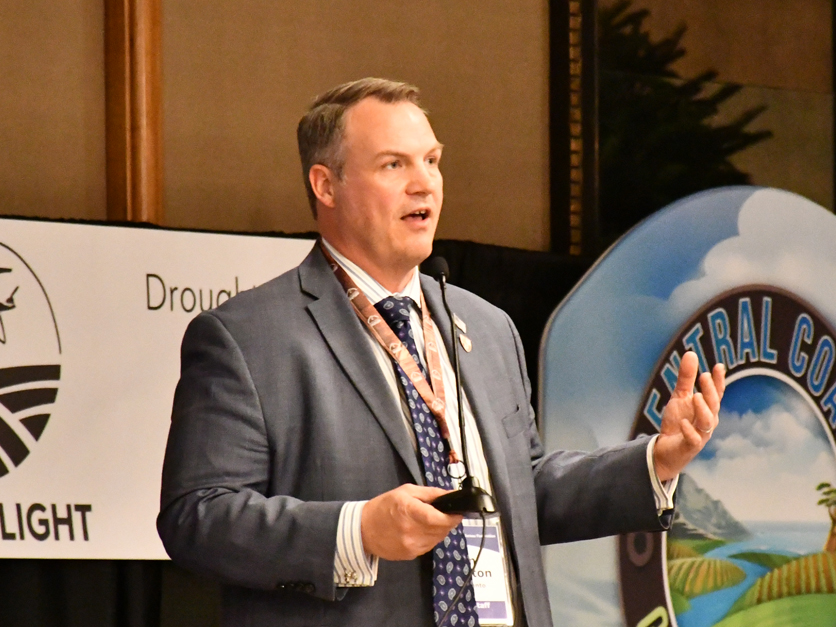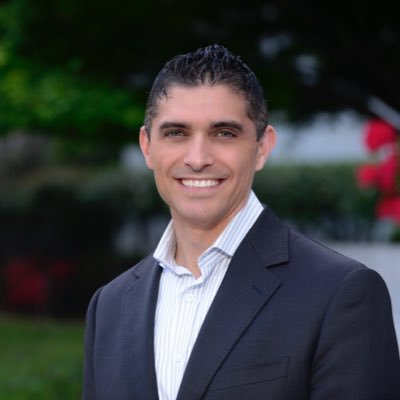Political leaders in Sacramento are setting the groundwork for a full year ahead, making up for a 2020 legislative session that left hundreds of bills in the inactive file. Several lawmakers have already introduced priority bills on worker protections, universal healthcare, climate goals, wildfire prevention and bond measures for the 2022 ballot.
A changeover in leadership for the federal administration could set the stage for reopening negotiations over voluntary agreements for water flows and for approving critical water infrastructure funding. A shakeup in Gov. Gavin Newsom’s cabinet along with new priorities on land conservation and carbon sequestration goals could lead to a more prominent role for agriculture in state policy, sources tell Agri-Pulse.
The most immediate issue will be addressing the state budget. Newsom anticipated in May the pandemic would run up a deficit as high as $54 billion. Yet the nonpartisan Legislative Analyst’s Office in November found an unexpected “windfall” of $26 billion, due to tax revenues from higher-income earners. While the analysts cautioned the deficit could still reach $17 billion over the coming years, lawmakers have already been eyeing the windfall for responding to the homelessness crisis as well as a potential wave of evictions for renters and gaps in healthcare coverage for undocumented farmworkers.
The release of the governor’s initial budget proposal in early January will set the pace for negotiations to come.
Legislators have been resetting their priorities after the 2020 session ended with political infighting between the two houses and time running out on key legislation. Two of those lawmakers have reconciled their differences over broadband access and reintroduced their bills last week. Another new broadband bill would expand rural access and a fourth proposes a $10 billion infrastructure bond.
Farmworker protections will continue to be a priority for both the Newsom administration and lawmakers. One new bill would put these essential workers in the same tier as healthcare providers. Asm. Robert Rivas, who represents the Central Coast region and now chairs the Assembly Agriculture Committee, has introduced a measure to stockpile N95 masks to distribute to ag workers when hazardous wildfire smoke is present.
The temporary emergency regulation requiring masks when the air quality drops is expected to be finalized by the Cal/OSHA board on Thursday. The board will consider making the regulation permanent in 2021 and Bryan Little, the employment policy director with the California Farm Bureau Federation (CFBF), plans to push for more flexibility on the type of respirators allowed, with the hope of including KN95 masks on the list. Speaking at the CFBF annual meeting last week, Little said labor advocates will be pushing to add provisions like requiring employers to perform fit testing and medical evaluations, “which is going to be very difficult to do when we have a workforce at peak season of 650,000 people.”
With the selection of Rivas as ag chair, Senate President pro Tempore Toni Atkins (above) went the opposite route, taking the rare step of appointing Republican Senator Andreas Borgeas to chair the Senate Agriculture Committee. Atkins said having the two parties “working together on agriculture can yield thoughtful public policy, and that, in turn, benefits all of California.” It also has the potential of being a backstop for bills approved by the more progressive Rivas.

California Farm Bureau Administrator Jim Houston
California Farm Bureau Political Affairs Manager Mike Zimmerman said the Senate has in the past blocked “some of the more harmful Assembly policies.” With President Trump leaving office and California no longer acting as the state of resistance, CFBF Administrator Jim Houston is hopeful for more bipartisan efforts in the years ahead. He said voters are moving past the “Trump factor,” knowing that “there’s no longer somebody to blame back in D.C.” for issues like rising unemployment, closed schools and devastating wildfires. Houston believes the negative press about leaders in Sacramento on these issues is serving as a check on their authority.
“They were just drunk with power,” said Houston. “There was no threat to [any of their decisions].”
Moderate Democrats like Asm. Jim Cooper of Elk Grove and Sen. Susan Rubio of Los Angeles, he added, are becoming stronger advocates for agriculture and “a force to be reckoned with.” Houston expects more Democrats will lean to the center as the 2022 elections draw closer.
Signals suggesting voters are beginning to push back on government spending can be seen in the rejection of the Proposition 15 ballot measure on commercial property taxes and the Republican turnover of key House seats in California, which includes the return of Republican David Valadao to the Fresno district—all welcome signs for CFBF President Jamie Johansson. Both Johansson and Houston pointed to the steady growth of the state budget, which has more than doubled over the last decade.
Houston said the defeat of Prop. 15 could “put a bit of a pause” on Democratic control of the Assembly, which has lasted for most of the last 60 years. Yet he warned the campaign against the split-roll tax measure “showed the amount of money we’re up against in these elections is astronomical,” adding that agriculture should expect to spend $4 million each cycle.
Houston was also skeptical of voters passing proposals like a climate resilience bond without industry support. Three senators revived a bond measure last week that would deliver $5.5 billion to various projects aimed at wildfire prevention, safe drinking water, drought preparation and flood protection. Newsom has promised to revive a similar measure as well.
“When you peel back the onion, it's just more money for themselves,” said Houston. “[The proposals] are so small-scale and limited that they're not nearly going to climb the mountain they need to climb without utilizing private landowners and private industry.”
CFBF has stressed that major climate initiatives like this need farmer-led solutions, a message that Johansson said resonated in the governor’s executive order aimed at conserving 30% of the state’s land and coastal waters by 2030.
With Newsom’s ban on gas and diesel engines, the agriculture industry as well as CDFA Secretary Karen Ross, hopes to find a compromise for tractors and other agricultural equipment, capitalizing on the order’s use of the phrase “when technically feasible” as the Air Resources Board (CARB) considers those regulations in 2021.
CARB and CalEPA, in the wake of racial unrest across the nation, have been boosting the voices of environmental justice advocates in rulemaking decisions, especially for farmworker communities. This will continue to play out as CARB adds more communities to the AB 617 program, which incentivizes emissions reductions in socially disadvantaged communities. Environmental justice will have a central part in CARB’s overhaul of California’s cap-and-trade program next year. The rulemaking could lead to increased penalties on industries in areas with the worst air quality, such as the San Joaquin Valley.
Outgoing CARB Chair Mary Nichols has reportedly fallen from the top of the list for Biden's pick to head EPA, which is likely due to more than 70 environmental justice groups charging that Nichols has a “bleak track record in addressing environmental racism.” Their argument is rooted in a 2018 battle over renewing the cap-and-trade program. Nichols had championed the program throughout her 13 years as chair.
CFB's Mike Zimmerman said choosing Nichols to head EPA would also be dangerous for California agriculture and “one of the toughest appointments for us to work with moving forward.”
Newsom's pick to replace Nichols after her retirement this month has taken that message to heart, with Liane Randolph committing to focus on low-income communities of color during her tenure. The Department of Pesticide Regulation has also taken steps to prioritize environmental justice in its strategic planning, which will play out as the agency continues pilot programs on reducing 1,3-D fumigant emissions in targeted areas.
Interested in more coverage and insights? Receive a free month of Agri-Pulse West.
In responding to the coronavirus pandemic, Newsom often references farmworkers as one of the vulnerable communities he seeks to protect. This message resonates with powerful environmental and labor groups, which will be vital as Newsom ramps up his 2022 reelection campaign.
Farmworker protections will be front of mind as Newsom picks a replacement for Attorney General Xavier Becerra, who has accepted a position in the Biden cabinet. Becerra has long been an outspoken critic of the agriculture industry when it comes to pesticides, H-2A wages, endangered species rules and COVID-19 protections.

Political consultant Jim DeBoo
Newsom also lost two Central Valley advisors this year, with the departures of ag liaison Bill Lyons ahead of the administration’s lawsuit over federal biological opinions and the resignation of economic advisor Lenny Mendonca, who hailed from a Turlock dairy family. Newsom’s chief of staff, Ann O’Leary, is leaving the cabinet for a position in Washington, as well.
Newsom has tapped a Hollywood executive to fill Mendonca’s position and longtime Sacramento lobbyist, Jim DeBoo, to replace O’Leary. Yet, there's been no replacement for Lyons. He filled a vital role in negotiating voluntary agreements, working with industry and communities on rolling out plans for the Sustainable Groundwater Management Act (SGMA), and advising the governor on aggressive environmental bills.
In a panel discussion for the Almond Conference last week, Asm. Adam Gray of Merced called the State Water Resources Control Board and other agencies “tone deaf” for not slowing regulatory processes during an economic crisis.
“The biggest challenge to agriculture going forward this next year is going to be the implementation of SGMA at the same time that we're dealing with an economic recession and a public health crisis,” said Gray. “We need to hit the pause button in some of these regulatory spaces.”
Gray introduced a bill last week that would provide tax credits for essential and small businesses that have to comply with “costly” new COVID-19 regulations. He argued the state should foot the bill.
“State regulators continue to push the costs associated with COVID-19 onto employers,” he said.
While some of the bills that would have created additional layers of costs and “a great deal of hardship” were defeated this year, Gray expects them to return in 2021.
“There were a lot of other bills that went through that were—at the very best—loosely connected to COVID,” said Republican Asm. Heath Flora of the central San Joaquin Valley during the Almond conference discussion.
One of Flora’s priorities for the new session is a carbon sequestration bill that would grant offset credits to farmers for whole orchard recycling. According to CDFA Deputy Secretary for Legislative Affairs Rachael O'Brien, CARB is already considering financing mechanisms for this measure. O’Brien also expected to see the return of policies on single-use plastic packaging.
Flora, who has deeps roots in California farming, noted that the most challenging part of his job will continue to be building relationships while socially distanced for coronavirus.
“We as an industry, we as legislators, for the state of California’s sake, need to get back to that building and get back to work with each other,” he said, noting the new vaccine rollout. “Hopefully, when we start getting into February and March, we can see some changes, and really start opening back up.”
For more news, go to www.Agri-Pulse.com.


